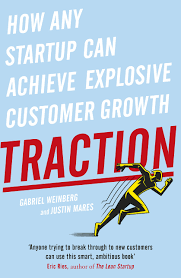The Lean Startup: Book Summary
The Lean Startup by Eric Ries offers a fresh approach to building successful startups, emphasizing continuous innovation and avoiding unnecessary failures. Ries introduces key principles to help entrepreneurs and businesses develop products that meet customer needs through a structured, scientific approach.
Key Concepts:
- Build-Measure-Learn Loop: The core of the lean startup methodology is a feedback loop where you build a minimum viable product (MVP), measure its performance, and learn from the results. This cycle ensures that time and resources are invested only in what truly works for the customer.
- Minimum Viable Product (MVP): Instead of spending months developing a perfect product, create a simplified version (MVP) to test key assumptions. This helps you gather real-world feedback with minimum resources, allowing for quick iterations and improvements.
- Validated Learning: Success is measured not by vanity metrics (such as revenue or user count) but by learning what customers truly want. Every experiment should focus on validating a core business hypothesis, ensuring that progress is based on solid insights.
- Pivot or Persevere: After gathering customer feedback, startups must decide whether to pivot (change direction) or persevere with their current strategy. Pivots might involve changing the product, customer segment, or business model to adapt to real market demands.
- Innovation Accounting: Ries emphasizes tracking progress with actionable metrics. Entrepreneurs should focus on specific goals related to customer engagement, product adoption, and retention, avoiding traditional measures of success that don’t show real growth.
- Continuous Deployment: By releasing updates and new features frequently, startups can react to customer feedback faster. This approach encourages constant learning and adaptation, leading to quicker, more informed decisions.
Why It Matters:
The Lean Startup approach encourages companies to be more flexible, customer-driven, and efficient in product development. Instead of relying on assumptions, entrepreneurs are urged to experiment, listen to users, and adapt accordingly. This mindset minimizes wasted resources and maximizes the chances of creating a successful product that customers genuinely want.
The Lean Startup is not just for new entrepreneurs but also for established businesses looking to innovate and grow. By adopting these principles, businesses can reduce risk, increase their chances of success, and create a culture of continuous learning and improvement.




